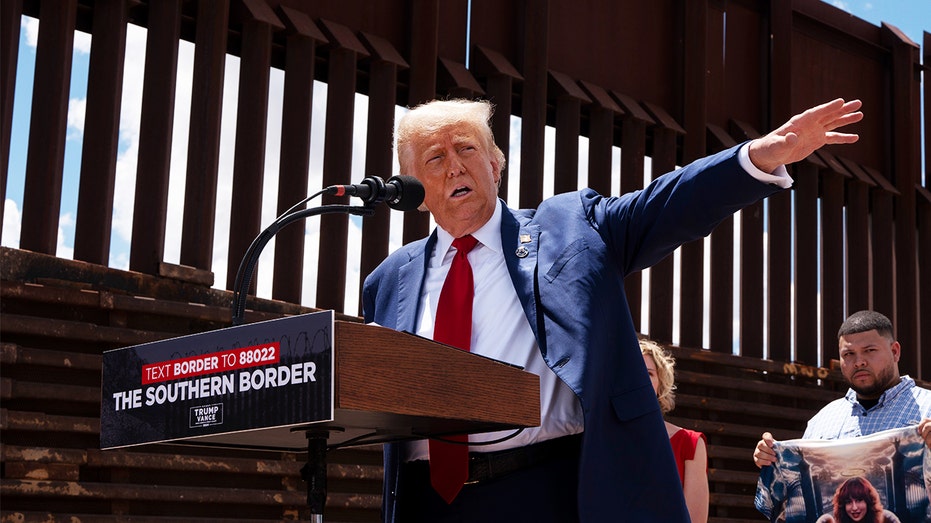- by foxnews
- 18 Mar 2025
'Liberation Day': What to expect from President-elect Trump on border security, immigration
President-elect Trump has promised to launch a mass deportation operation and to wind back a slew of Biden-era policies when he enters office in 2025.

"We're going to fix our borders," Trump said Wednesday as he declared victory. "We're going to fix everything about our country, and we've made history for a reason tonight."
Those calls were fueled in part by a historic crisis at the border that exploded under President Biden's watch and just months after Trump left office. While the Biden administration blamed a lack of funding and a broken immigration system, Trump and Republican allies pointed instead to the rolling back of Trump-era policies by the administration.
Whatever the cause, millions of migrants flooded into the United States as numbers skyrocketed in 2021 and remained at record highs through 2022 and 2023. Numbers dropped sharply in June after Biden limited entries into the U.S., although migrants have continued to come into the U.S. via a broad use of humanitarian parole.
While numbers are now down at the border, 2024 has seen a series of high-profile crimes by illegal immigrants, some of whom were allowed into the U.S. under the administration.
Trump has made clear his intention to turn the clock, promising during his campaign to end "every open borders policy of the Biden administration."
"Following the Eisenhower Model, we will carry out the largest domestic deportation operation in American history," Trump said.
He said in Auroro, Colorado, last month that Election Day would be known as "Liberation Day" for the U.S. from a foreign occupation.
"We're being occupied by a criminal force, and we're an occupied state that refuses to let our great law enforcement profession do the job that they so dearly want to do," he said in Aurora. "But to everyone here in Colorado and all across our nation, I make this pledge and vow to you, Nov. 5, 2024, will be Liberation Day in America."
In terms of actions taken by the Biden administration, a future Trump administration will likely roll back the broad use of humanitarian parole that has seen hundreds of thousands of migrants brought in using the CBP One app - both at the ports of entry and by a controversial travel authorization program for nationals from Cuba, Haiti, Nicaragua and Venezuela that allowed 30,000 in each month from those countries,
Republicans have also called for a tighter use of Temporary Protected Status, which grants foreign nationals from certain countries protection from deportation and work permits if it is deemed unsafe for them to return.
The incoming administration will likely end the Biden administration's interior ICE enforcement limits, limit refugee admissions and restore its public charge rule - which limited the ability of immigrants to claim green cards if they are deemed likely to be reliant on welfare.
Other Trump-era policies that could come back include a form of the Remain-in-Mexico policy, which saw migrants stay in Mexico while they wait for their asylum cases to be heard, and travel bans from countries deemed to be national security threats.
"I'm going to inform [the Mexican president] on day one or sooner that if they don't stop this onslaught of criminals and drugs coming into our country, I'm going to immediately impose a 25% tariff on everything they send into the United States of America," he said.
Meanwhile, it is unclear if Trump's election will dissuade migrants from attempting entry into the U.S., or if it might trigger a final surge to attempt entry before he takes office in January.
- by foxnews
- descember 09, 2016
Travelers can hunt for million-year-old fossils and more valuable treasures in these spots
Travelers can dig up 66-million-year-old dinosaur fossils in New Jersey or mine for diamonds at an Arizona state park. See more U.S. locations where you can hunt for treasures.
read more





